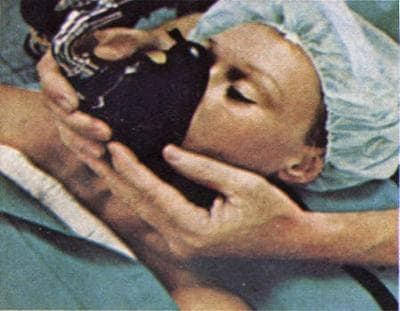Advertisement
Study: Use Ritalin To Wake Patients Up Sooner After Surgery?

Ritalin is famed as a drug for Attention Deficit Disorder, but a new study in rats suggests that its effects on the brain's arousal circuits could also be used to wake patients up sooner after surgery.
Why bother? Several reasons, from saving health care money to possibly reducing post-operative delirium.
Dr. Emery Brown, a neuroscientist and anesthesia expert at MIT, Harvard and Massachusetts General Hospital, explains the new research, led by Mass. General's Dr. Ken Solt, just out in the journal Anesthesiology. He is a co-author on the paper.
This is a major new result because it shows that we can wake the brain up from general anesthesia. Currently at the end of surgery, the anesthesiologist just lets the anesthetic drugs wear off and the patient regain consciousness.
We decided to study the possibility of devising a strategy to wake patients up from general anesthesia. In this paper we show that it is possible to administer to rats methylphenidate (Ritalin) -— the same drug that is used to treat attention deficit hyperactivity disorder (ADHD) in children. This drug actively induces emergence of the animals from general anesthesia.
[module align="right" width="half" type="pull-quote"]'This is an exciting experimental finding that has to be replicated in humans.'[/module]
It is not that the anesthesia is being reversed. Rather the arousal pathways, most likely the dopaminergic and noradrenergic pathways, are being activated to allow the brain to overcome the effects of the general anesthesia and the animal to awaken. It is known that Ritalin blocks the reuptake of dopamine to maintain the brain levels of this excitatory neurotransmitter.
This is an exciting experimental finding that has to be replicated in humans. If this pans out, it could change anesthesiology practice by initiating use of a drug that is already known to be safe to actively induce emergence from general anesthesia.
This would have important implications; possibly reducing cognitive dysfunction in the elderly and delirium in children after general anesthesia.
This may also suggest strategies for helping patients recover from coma. Because we show that Ritalin also induces breathing it may also be useful as drug to help rescue patients who may have received too much sedation for a simple procedure.
Also, an hour in the operating room can cost between $1,000 to $1,500. Small savings per patient that allow us to safely cut down on the costs of operating room time could be enormous. At present, approximately 100,000 people receive anesthesia daily in the US.
Note: No link for the paper yet, but its full title is "Methylphenidate Actively Induces Emergence from General Anesthesia."
This program aired on September 21, 2011. The audio for this program is not available.
